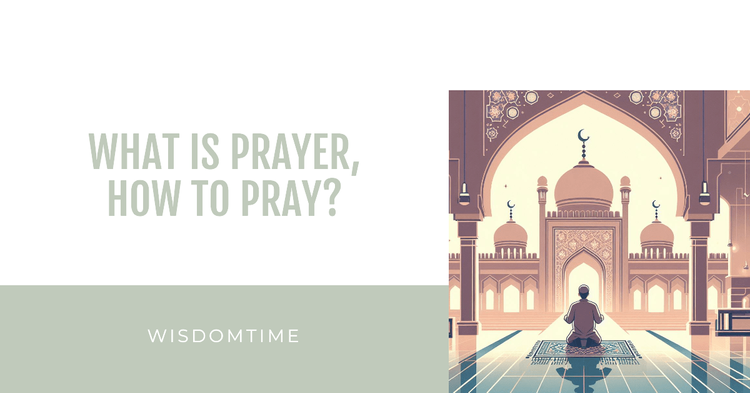
What is Prayer, How to Pray?
Prayer is the verbal expression of our desires and fears, meaning presenting what we want to obtain and avoid, to Allah. There is no difference between saying the prayer aloud or expressing it internally.
Let's emphasize a distinction: in everyday language, the terms “request” and “desire” are often confused with the word “prayer”; instead of saying, "I want something like this," people might say, "we had such a prayer," as seen in songs and folk songs. However, the two are different.
In this context:
1-) You don't truly pray to Allah unless you personally address Him with a conscious intention, speaking to Him, and making a request from Him. Yes, Allah knows what is in the hearts, but unless you ask directly and consciously, what passes through your heart is not considered a prayer. Fantasizing about praying one day is not a prayer.
Planning to pray is not a prayer. Having your wish fulfilled is not a prayer. Let's reiterate: only consciously, turning to Allah from your heart, expecting from Him, and asking Him is considered a prayer.
2-) Anything a person desires may be good or bad for them. However, praying is always good.
a) Before a person starts desiring something, they should research, contemplate, consult experts or experienced individuals, and make a decision. Before targeting something, one should think well.
b) However, whether a person has thoroughly thought about it or not, asking Allah from the heart is definitely good; there is no evil in it. Allah either gives them exactly what they asked for, gives them something better, protects them from future calamities in response to their prayer, or forgives their sins in proportion to the prayer made. A person never incurs harm from praying to Allah.
3-) Since praying is directly related to a person being a servant of Allah, it can be done anytime, anywhere and in any position. While walking or lying down, while in ablution(wudu)(1) or in a state requiring a full ablution, while living by religious principles or drowning in sins... As long as a person is a servant of Allah, they can and they should pray.
4-) However, there are things that can be done to fully focus one's heart on Allah during prayer. Being in ablution, facing the qibla, opening the hands, being alone are beneficial for a more effective prayer, but they are not obligatory.
5-) Before starting and during prayer, a person should:
i) Remember that Allah is hearing them at that moment,
ii) Know that Allah knows their state very well,
iii) Acknowledge that His power is sufficient for everything,
iv) Realize that His treasury contains everything,
v) Recognize His generosity,
vi) Understand that He loves to be asked and has commanded it,
vii) Believe that He will surely accept their prayer in the best way (either exactly as requested or even better).
6-) An ideal prayer should:
i) Begin with the phrase "Bismillah" (In the name of Allah),
ii) Include blessings at the beginning and end,
iii) Express gratitude for the blessings given by Allah in the opening section,
iv) Include seeking forgiveness for sins,
v) Incorporate the names of Allah and prayers of the Prophet if known,
vi) Clearly and definitively state the request. Yes, it should be requested with precise expressions, saying "give,"
vii) End with Surah Al-Fatiha,
viii) Be repeated at different times,
ix) If possible, be performed during the night prayer (Tahajjud).
In summary, prayer is the shortest way for a person to communicate directly with Allah and is the soul's conversation with Allah. Giving the necessary importance to this worship will be extremely beneficial for believers.
1-) Ablution in İslam (Wudu) is the Islamic procedure for cleansing parts of the body, a type of ritual purification, or ablution.
